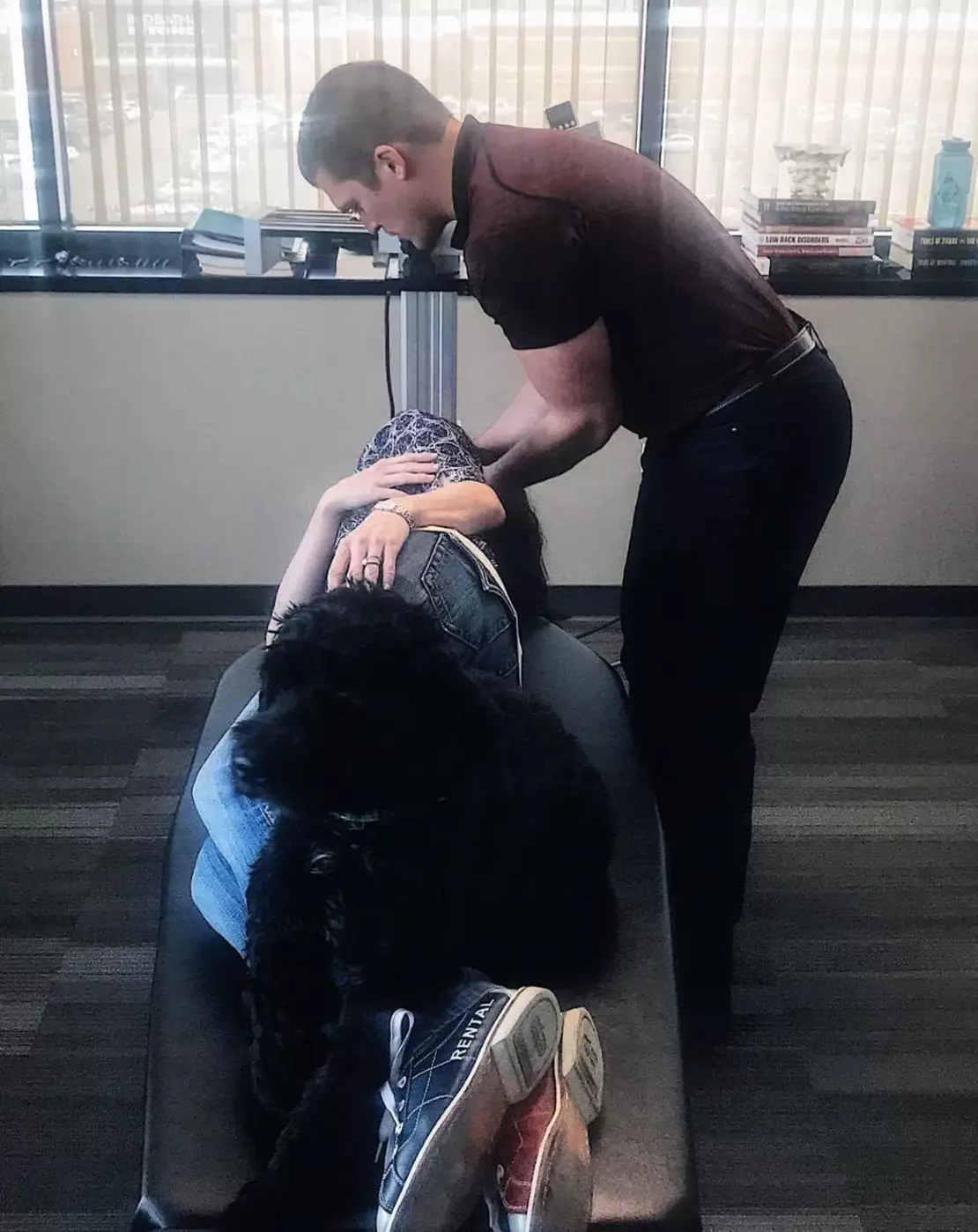Living in Limbo: Navigating Life with Undiagnosed Neurological Symptoms
Exploring the Unique Causes of Headaches in Denver and How Chiropractic Care Provides Relief
The Frustration of Not Having a Diagnosis
Living with undiagnosed neurological symptoms is a constant struggle, marked by a never-ending cycle of doctor visits, tests, and uncertainty. Individuals often experience symptoms that severely impact their daily lives, yet remain undiagnosed despite thorough medical evaluations. This can lead to feelings of frustration, helplessness, and even skepticism from healthcare providers.
Common Unexplained Neurological Symptoms
People suffering from unexplained neurological symptoms often report persistent headaches or migraines, muscle weakness or paralysis, numbness or tingling sensations, balance and coordination issues, cognitive difficulties such as memory loss or confusion, visual disturbances, and speech difficulties.
Types of Unexplained Neurological Symptoms
Peripheral Neuropathy: Involves damage to the peripheral nerves, causing pain, numbness, and weakness, particularly in the hands and feet. This condition can arise without a clear cause, leading to significant distress and functional impairment. Patients often describe the sensation as burning, tingling, or electric shocks.
Unexplained Seizures: These can occur sporadically and are difficult to manage without a definitive diagnosis. Seizures without a known cause can be particularly challenging to treat, as they may not respond well to standard epilepsy medications. The unpredictability of these seizures adds to the patient’s anxiety and stress.
Movement Disorders: Tremors, dystonia, or tics can occur without an identifiable cause, making them challenging to treat. These disorders can manifest as involuntary movements, muscle contractions, or repetitive motions, severely impacting a person’s ability to perform daily tasks. The lack of a clear diagnosis often complicates the management and treatment of these symptoms.
Functional Neurological Disorder (FND): Patients experience neurological symptoms like limb weakness, seizures, or sensory disturbances without any structural or biochemical abnormalities. These symptoms can mimic serious neurological conditions but are not explained by traditional medical tests. FND can significantly impact a person’s quality of life and requires a comprehensive approach to diagnosis and treatment.
Chronic Fatigue Syndrome (CFS): Characterized by extreme fatigue that does not improve with rest and cannot be explained by any underlying medical condition. Patients with CFS often experience additional symptoms such as sleep disturbances, memory issues, and muscle pain, which further complicate their condition.
Autonomic Dysfunction: Involves the autonomic nervous system, leading to symptoms such as abnormal heart rate, blood pressure issues, and digestive problems. These symptoms can be severe and disruptive, occurring without a clear underlying cause.
Cognitive Impairments: Includes issues with memory, attention, and executive function that are not linked to any identifiable brain injury or disease. These impairments can severely affect daily functioning and quality of life, adding to the frustration of living with undiagnosed symptoms.
Sensory Disturbances: Patients may experience unexplained changes in sensation, such as numbness, tingling, or heightened sensitivity. These disturbances can affect various parts of the body and can be persistent or intermittent, complicating diagnosis and treatment.
Diagnostic Challenges
- Exhaustive Medical History and Physical Examination: Despite thorough evaluations, a definitive diagnosis often remains elusive.
- Comprehensive Testing: Imaging studies (MRI and CT scans), EEGs, blood tests, and lumbar punctures frequently yield inconclusive results, adding to the frustration.
The Emotional Toll
The absence of a diagnosis can lead to significant emotional and psychological distress, including anxiety, depression, and a sense of isolation, as patients may feel dismissed or not taken seriously by healthcare providers.
Managing Unexplained Neurological Symptoms
Medications such as pain relievers, antidepressants, and anticonvulsants can help manage symptoms. Pain relievers reduce discomfort, antidepressants address mood disorders and chronic pain, and anticonvulsants manage nerve pain and seizures. Physical therapy improves strength, coordination, and balance through tailored exercise programs and manual therapy techniques like massage.
Cognitive Behavioral Therapy (CBT) helps patients manage symptoms by changing their thoughts and behaviors, addressing the psychological aspects of chronic pain. Support groups provide emotional support and practical advice, offering a sense of community and shared experience.
Stress management techniques like mindfulness, meditation, and relaxation exercises can reduce symptom severity. Maintaining a healthy lifestyle through diet and exercise improves overall well-being, while avoiding triggers such as caffeine or alcohol and ensuring adequate sleep can significantly impact symptom management. Integrating these lifestyle changes leads to a holistic improvement in health and a reduction in the severity and frequency of neurological symptoms.
Neurological dysfunctions play a significant role in unexplained chronic pain. Nerve dysfunction, where the nervous system abnormally processes pain, and central sensitization, where the central nervous system becomes highly sensitive, are key factors. These conditions amplify pain responses even in the absence of an ongoing injury or disease.
Stress and anxiety can exacerbate pain perception. Chronic stress can lead to muscle tension and pain, while anxiety can heighten the body’s pain response. Depression is another critical factor, as it can both result from and contribute to chronic pain. The interplay between chronic pain and depression often creates a vicious cycle that is challenging to break.
Genetic predisposition can make some individuals more susceptible to chronic pain conditions. For instance, genetic factors may influence how one’s body processes pain signals. Immune system dysregulation is another significant factor; abnormal immune responses can lead to conditions like fibromyalgia and chronic fatigue syndrome (CFS), contributing to chronic pain.


Muscle strain from overuse or improper use can lead to chronic pain. Muscle injuries due to heavy lifting or repetitive motions, often resolving within six weeks with proper treatment, can also cause persistent pain. Poor posture is a common cause of chronic back and neck pain, while spinal misalignments can lead to pain without an obvious injury.
Pain relievers such as NSAIDs and acetaminophen, along with prescription pain medications, are commonly used to manage chronic pain. Antidepressants can help manage pain and associated mood disorders, while anticonvulsants are often used in conditions like fibromyalgia to alleviate pain.
Exercise programs tailored to improve strength, flexibility, and pain management are crucial in treating chronic pain. Regular physical activity helps maintain muscle tone, reduces stiffness, and improves overall function. A physical therapist can design specific routines that include aerobic exercises, stretching, and strength training to address individual needs. Manual therapy techniques, including massage and joint mobilization, can also provide significant relief by improving blood flow, reducing muscle tension, and enhancing the range of motion.
Cognitive Behavioral Therapy (CBT) is effective in managing chronic pain by changing the patient’s thoughts and behaviors. Mindfulness and relaxation techniques can reduce stress and improve pain management.
Acupuncture and chiropractic care are alternative therapies that can help alleviate chronic pain. Acupuncture involves stimulating specific points on the body to relieve pain, reduce inflammation, and promote healing. Chiropractic care focuses on spinal adjustments and manipulations to improve function and reduce pain. These treatments can be particularly beneficial for musculoskeletal issues, providing non-invasive options to manage chronic pain without relying solely on medications.
At Denver Upper Cervical, we specialize in providing precise and gentle chiropractic care tailored to address your specific needs. Our approach focuses on correcting misalignments in the upper cervical spine, which can have a significant impact on your overall health and well-being. By ensuring proper alignment, we help improve nerve function, reduce pain, and enhance your body’s natural healing abilities.
Our experienced chiropractors use advanced techniques and state-of-the-art equipment to deliver effective and safe treatments. We take the time to understand your unique condition and develop a personalized care plan aimed at achieving lasting relief and improved quality of life.

Conclusion
Living with undiagnosed neurological symptoms is incredibly challenging, marked by ongoing uncertainty and frustration. While a definitive diagnosis may remain elusive, managing symptoms through a comprehensive approach that includes medical, psychological, and lifestyle interventions can significantly improve quality of life. Denver Upper Cervical specializes in providing precise and gentle chiropractic care tailored to address your specific needs, helping you find lasting relief from your symptoms.
Schedule an Appointment Today!
If you’re struggling with chronic pain and traditional treatments haven’t provided the relief you need, schedule an appointment with us. Our dedicated team is here to help you on your journey to better health. Contact us today to learn more about our services and how we can assist you in managing and overcoming chronic pain.
For more information, visit our website or call to schedule a consultation with one of our specialists. Let us help you take the first step towards a pain-free life.
Sources:
1. Functional Neurologic Disorder – NINDS
https://www.ninds.nih.gov/health-information/disorders/functional-neurologic-disorder
2. Conversion Disorder (Functional Neurological Symptom Disorder) – Mayo Clinic
https://www.mayoclinic.org/diseases-conditions/conversion-disorder/symptoms-causes/syc-20355197
3. What if I Am Undiagnosed? – Brain and Spine Foundation
4. 6 Neurological Conditions and Symptoms You Should Look Out For – Banner Health
5. Neurological Disorders – Johns Hopkins Medicine
https://www.hopkinsmedicine.org/health/conditions-and-diseases/neurological-disorders
© 2026 Denver Upper Cervical Chiropractic

